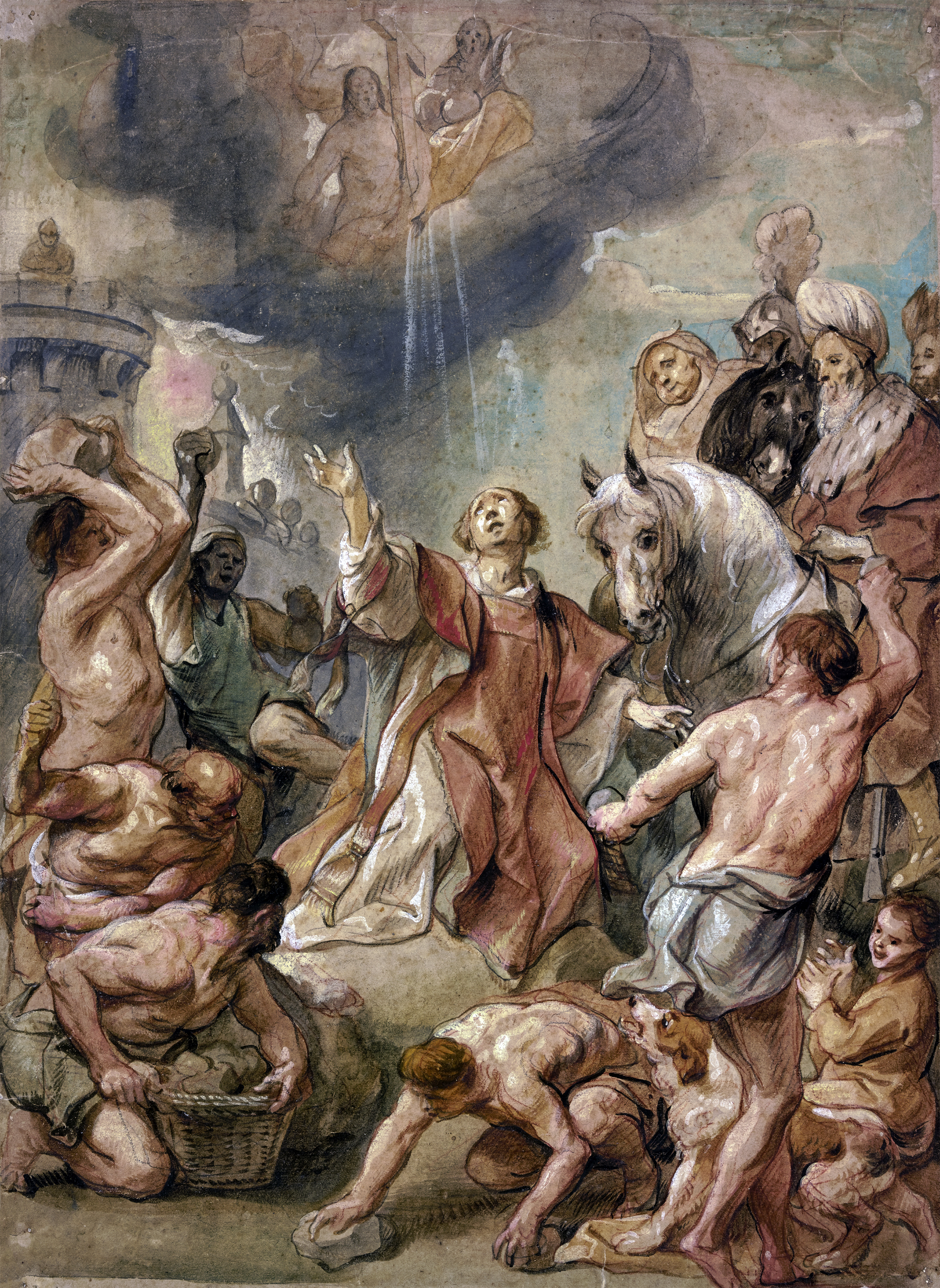“You stiff-necked people, uncircumcised in heart and ears. You always oppose the Holy Spirit. . . . You received the law as transmitted by angels, but you did not observe it” (Acts 7:51, 53). The people Stephen spoke these words to were not ready for the coming of Christ. They received the Mosaic Law and they heard the preaching of Christ, but their heart and ears remained closed off to what they received and heard.
The crowd that met Jesus in our Gospel seemed to have a different posture. “What sign can you do, that we may see and believe in you?” (John 6:30). They wanted to believe in Jesus and stood ready to listen to what He had to say and believe in Him. But is it really that different? “What sign can you do?” “What can you do? Our ancestors ate manna in the desert” (John 6:31). It’s not that they were ready to listen to Jesus and believe Him already. It’s that they needed a sign from Him to know that He was trustworthy. They didn’t trust His word.
Jesus tells us that He does not just give us the bread from heaven: He is the bread from heaven. In order to receive the sign that they are looking for, they have to believe in Him and follow Him. The order is reversed: they had hoped to see a sign so that they might believe, but they had to believe in order for the sign to be possible.
Perhaps this is the same thing that happened with the people Stephen was speaking to. They had received the message of God, but they were waiting for a sign to give it credence. Yet God was asking them to trust His authority on the strength of His word — only then would they receive the blessings from following the Law and heeding the prophetic message.
Trust in the strength of His word. This is what we are asked to do when Jesus proclaims that He is the Bread of Life. We should expect great blessings from the Lord, but we should not feel that we are owed them for any reason. It is not our right to receive signs from God, and we shouldn’t follow Him simply in order to receive blessings. The blessings will come, but the trust and obedience are what come first.
This is easy to accept in theory, especially when we have heaps of evidence regarding the authority of God from the Bible alone, but it is difficult in practice. We are called to trust God at all times, remaining detached from signs and wonders. They will come, but we do not know when. Instead, we follow Him both day and night, both when we can see His path and when everything around us remains uncertain.
“Hombres de cabeza dura, cerrados de corazón y de oídos. Ustedes resisten siempre al Espíritu Santo… Recibieron la ley por medio de los ángeles y no la han observado” (Hechos 7,51 y 53). Las personas a las que Esteban dirigió estas palabras no estaban preparadas para la venida de Cristo. Recibieron la Ley Mosaica y oyeron la predicación de Cristo, pero su corazón y sus oídos permanecieron cerrados a lo que recibieron y oyeron.
La multitud que se encontró con Jesús en el Evangelio parecía tener una postura diferente. “¿Qué signo vas a realizar tú, para que lo veamos y podamos creerte?” (Juan 6,30). Querían creer en Jesús y estaban dispuestos a escuchar lo que tenía que decir y creer en Él. Pero, ¿es realmente tan diferente? “¿Qué signo vas a realizar tú?” “¿Qué puedes hacer tú? Nuestros antepasados comieron el maná en el desierto” (Juan 6,31). No es que ya estuvieran preparados para escuchar a Jesús y creerle. Es que necesitaban una señal de Él para saber que era digno de confianza. No confiaban en Su palabra.
Jesús nos dice que no sólo nos da el pan del cielo: Él es el pan del cielo. Para recibir la señal que están buscando, tienen que creer en Él y seguirlo. El orden es al revés: ellos habían esperado ver una señal para poder creer, pero tuvieron que creer para que la señal fuera posible.
Quizás esto es lo mismo que sucedió con la gente a la que hablaba Esteban. Habían recibido el mensaje de Dios, pero estaban esperando una señal que le diera credibilidad. Sin embargo, Dios les estaba pidiendo que confiaran en Su autoridad y en la fuerza de Su palabra; sólo entonces recibirían las bendiciones de seguir la Ley y prestar atención al mensaje profético.
Confiar en la fuerza de Su palabra. Esto es lo que se nos pide que hagamos cuando Jesús proclama que Él es el Pan de Vida. Debemos esperar grandes bendiciones del Señor, pero no debemos sentir que se nos deben por ninguna razón. No tenemos derecho a recibir señales de Dios, y no debemos seguirlo simplemente para recibir bendiciones. Las bendiciones vendrán, pero la confianza y la obediencia son lo primordial.
Esto es fácil de aceptar en teoría, especialmente cuando tenemos montones de evidencias sobre la autoridad de Dios que provienen únicamente de la Biblia, pero es difícil en la práctica. Estamos llamados a confiar en Dios en todo momento, sin apegarnos a las señales y los prodigios. Vendrán, pero no sabemos cuándo. En cambio, lo seguimos día y noche, tanto cuando podemos ver su camino como cuando todo alrededor nuestro sigue siendo incierto.
 David Dashiell is a freelance author and editor in the Nashville, Tennessee area. He has three children, a degree in theology, and enjoys writing about philosophy, theology, culture, music, and comedy. You can find his personal blog, Serious Daydreams, on Substack. He is also the editor of the anthology Ever Ancient, Ever New: Why Younger Generations Are Embracing Traditional Catholicism, available through TAN Books.
David Dashiell is a freelance author and editor in the Nashville, Tennessee area. He has three children, a degree in theology, and enjoys writing about philosophy, theology, culture, music, and comedy. You can find his personal blog, Serious Daydreams, on Substack. He is also the editor of the anthology Ever Ancient, Ever New: Why Younger Generations Are Embracing Traditional Catholicism, available through TAN Books.
Feature Image Credit: Städel Museum, Public Domain, art.diocesan.com/stock-photo/the-martyrdom-of-saint-stephen-6409/
The views and opinions expressed in the Inspiration Daily blog are solely those of the original authors and contributors. These views and opinions do not necessarily represent those of Diocesan, the Diocesan staff, or other contributors to this blog.

